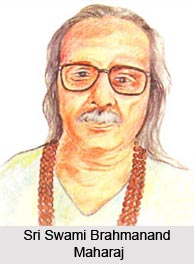 Among the very few spiritual leaders and social reformers in India, who has earned a lot of recognition and honour for their wonderful thoughts and vast knowledge, the name of Sri Swami Brahmanand Maharaj is definitely one of the most important ones. He is also one of the few eminent and esteemed personalities in Goa who has been working continuously for the establishment of Vishwa Dharma, by breaking the social barriers like caste, creed and communalism.
Among the very few spiritual leaders and social reformers in India, who has earned a lot of recognition and honour for their wonderful thoughts and vast knowledge, the name of Sri Swami Brahmanand Maharaj is definitely one of the most important ones. He is also one of the few eminent and esteemed personalities in Goa who has been working continuously for the establishment of Vishwa Dharma, by breaking the social barriers like caste, creed and communalism.
From the very childhood, Sri Brahmanand Maharaj has been quite interested in getting the knowledge of spiritualism and the ancient Indian philosophies and he has always used his knowledge for transforming the lives of the poor working class. He has always tried to do that by instilling a new sense of confidence and patriotism in them and he has also been working for over two decades to root out all social evils from the society. He is having a large number of disciples and followers and he has dedicated himself for imparting Vedic and Upanishadic knowledge to those thousands of non-Brahmin devotees.
Among the social and spiritual activities that Sri Brahmanand Maharaj has already executed, setting up of a full-fledged Vedic School for imparting Vedic knowledge to the socially ostracized communities, is surely one of the most important ones. Swamiji has taken the thoughts and definition of religion to new heights and he propagated the concept of Dharma through the teaching of human values and national pride, throughout his entire life. The moral values like love; compassion, tolerance, selfless service and a stronger nation are the most important pillars of his teachings.




















